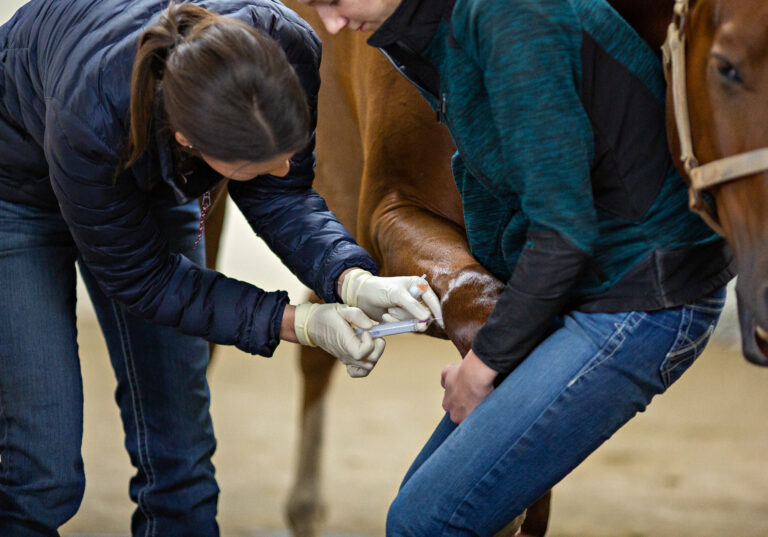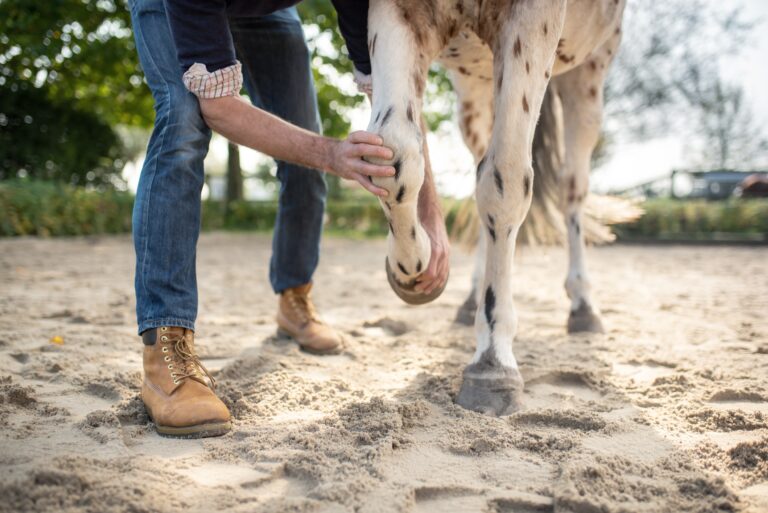At the recent AAEP Business Education Workshop in Indianapolis, I had the pleasure of giving a presentation and hosting hosted a workshop on social media for equine vets. On the last day, I was part of a panel discussing some of the main challenges facing our industry.

There were numerous concerns voiced, but the top three in terms of emotion and discussion time were all a result of the recession: a decreasing horse population; increased competition from non-vet and vet practitioners; and the oversupply of vets entering the profession.
These are formidable challenges for sure, but I was more worried about the general unwillingness, from some conference attendees, to look at the opportunities that are present within every challenge. To be fair, I am generalizing; but when older vets were speaking, the opportunities were not attainable and when younger vets or office managers were participating, they saw the solutions to their problems. It was encouraging to see, though, that there were some older vets who were chomping at the bit to get home and institute some of the lessons they had learned from the workshop. Whether it was marketing, branding, benchmarking, pricing strategies or increasing the value of a vet practice, there were plenty of excellent business building tools available to the attendees.
So where is the disconnect between those who see the opportunities and those who don’t? I realized during the panel discussion that it came down to those who want to accept change as a natural part of life, and those who insist on keeping their heads in the sand, hoping that, when they pull their heads out, everything will be as it was. I have to admit that I am sympathetic to the latter. Many practices are facing a bleak future if they stay on their current paths. I am sure these practice owners are worried that if they take the wrong approach to right the ship, they may further erode their future. It doesn’t have to be like this.
To those who want to adapt to the current state of equine vet medicine I offer my two cents’ worth, based on the actions I have seen in practices that are surviving quite well in these difficult times.
Have an attitude that looks for the plenty. We are all facing downward pricing pressure from Internet pharmacies, lay practitioners or even other vets, forcing us to lower prices to compete. Some practitioners at the workshop openly discussed giving up pharmacy sales (see related story, page 38), thinking they can’t compete with the online pharmacies. Another way of looking at that challenge is to admit they can always be cheaper, but can the Internet pharmacies be more convenient? With this in mind, how can you change the way your clients perceive how you sell medications? How can you let them know that you have the product for the sick horse now, on hand, ready to treat the horse immediately? Convenience can trump cheap in these situations.
Become an ambassador for your practice, and not a bystander. It is a sad truth that many vets got into the profession because they love animals and not people. The reality is that animals are an excuse to interact with people. The successful vet of the future will be one that looks forward to interacting with people and will find opportunities to do so. We need to be reaching out to our clients and not waiting for them to come to us.
This is where social media can help. Facebook, Twitter and YouTube are all tools that allow a veterinarian to be part of the conversations people are having about their horses. These platforms are where current and prospective clients can learn about your medical knowledge or the services you offer. As the online interactions continue, a level of trust is earned so that when a problem arises, or you recommend a course of action, the trust they have in you is in place.
This also helps when it comes to competing on price. Involving yourself in the online conversation will increase the perceived value of your knowledge, allowing you to price accordingly. We are not selling a commodity that can be shopped based on price.
Become a collaborator. The equine vet is a lonely soul. We are very individualistic, and unlike our small animal counterparts, we are not used to referring to or working with others on a case. This is at odds with clients who want to work with a vet as well as acupuncturists, farriers or massage therapists as part of the team involved in the health of their horses.
The relief I see on clients’ faces when I ask who else is working with their horses is palpable. They know they will not have to be embarrassed because their practitioner is dismissive of the efforts and work of other professionals on their horse care team.
If you are always the obstacle to teamwork, it won’t be long before they will look for the vet who plays well with others. Here is the bonus part of this approach: If you find that your clients are using services you don’t offer, imagine how happy they will be if you become trained in these modalities and can offer them yourself. If you can perform acupuncture as well as float teeth, why wouldn’t they want to use you? In addition, if you develop a good relationship with some of these other practitioners, they will begin referring you to their clients as a vet who works well with them. It’s a win-win situation.
Have everyone in your practice talking the same talk and walking the same walk. If you have instituted a renewed vision of treating your clients with excellent service, you had better hope that all staff, techs and other vets convey the same attitude. Nothing can ruin an experience with a veterinarian than when some other person within the practice doesn’t bring the same collaborative and enthusiastic attitude as the vet who is looking after the patient.
One of the speakers at the AAEP Business Education Workshop, Steve Kirton, presented on this subject. He was able to demonstrate that businesses that have buy-in from the staff have more profitable enterprises than those that do not. It makes business sense to spend the time to train your staff about the vision and values of your practice. This all ties in to developing a company culture where all employees feel valued and not disposable. Too many vet practices have a high staff turnover, which often stems from employee dissatisfaction or hiring the wrong people for the job. Happy staff will bring their eagerness to help clients and each other to the job. Staff members who are just collecting a paycheck will be indifferent, and will not commit to the vision or mission statement of the practice.
Each of these suggestions is a huge subject on its own and deserves further exploration. For now, these are my thoughts on what vet practices need to do survive in the new world of equine veterinary medicine. We have had a good ride until 2008, but three years later we all recognize that the foundation of the equine industry has changed. We can be like so many other defunct or dwindling industries and dig our heels in and resist the changing tides, or we can adapt and innovate. In other words, if you had the chance to buy the stock of Blockbuster or Apple five years ago, which company would you now regret not owning a piece of?
So think about it: Are you Blockbuster or Apple?
Mike Pownall, DVM, and his wife, Melissa McKee, DVM, own McKee-Pownall Equine Services, a five-practice business in the Toronto, Canada, area. Mike’s focus is on lameness, pre-purchase exams and podiatry. Outside of veterinary medicine, his passion is equine practice management. He blogs on the subject at http://equinevetbusiness.com.

![[Aggregator] Downloaded image for imported item #18395](https://s3.amazonaws.com/wp-s3-equimanagement.com/wp-content/uploads/2025/09/30141538/EDCC-Unbranded-23-scaled-1-768x513.jpeg)


